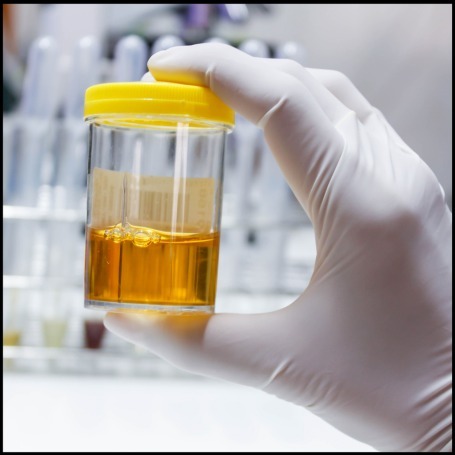
The Urine Copper Test measures copper levels in urine, assisting in the diagnosis of Wilson's disease and other disorders related to copper metabolism.


The Urine Copper Test is a diagnostic procedure that measures the amount of copper present in a person's urine. This test is crucial for diagnosing conditions related to copper metabolism, particularly Wilson's disease, a genetic disorder that leads to excessive copper accumulation in the body.
This test is essential for assessing copper levels in individuals suspected of having copper-related disorders. Elevated copper levels in urine can indicate conditions like Wilson's disease, while low levels may suggest deficiencies or other metabolic issues. Timely diagnosis through this test can guide treatment decisions and help prevent potential complications associated with abnormal copper levels.
Individuals experiencing symptoms related to copper metabolism disorders, such as unexplained fatigue, jaundice, abdominal pain, or neurological symptoms. Patients with a family history of Wilson's disease or other metabolic disorders that affect copper metabolism. People undergoing evaluation for unexplained liver disease or neurological symptoms.
Diagnopein is a trusted pathology lab centre for blood test and specialized diagnostic services in Pune, offering accurate and reliable testing solutions. As an NABL accredited lab, Diagnopein ensures that every test, including the Urine Copper Test, meets the highest standards of quality and precision. The lab is equipped with advanced technology and managed by experienced professionals dedicated to delivering accurate reports promptly. Whether it’s routine health checkups or specialized diagnostic tests, Diagnopein provides exceptional service and ensures patient satisfaction, making it the ideal choice for the Urine Copper Test in Pune.
If copper levels are elevated or decreased, your healthcare provider will discuss further diagnostic steps and potential treatment options based on your specific condition.
Symptoms may include fatigue, jaundice, abdominal pain, neurological changes, or unexplained liver dysfunction.
Results are typically available within 24 to 48 hours after the sample is submitted to the laboratory.
The test involves collecting a urine sample, usually over 24 hours, to measure the total amount of copper excreted.